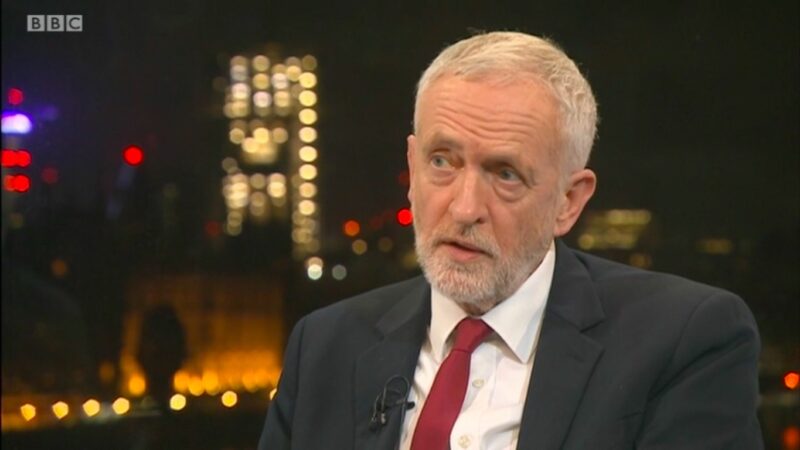
The most challenging day of the general election campaign yet for Labour came to an end with Jeremy Corbyn being interviewed by Andrew Neil. Everyone expected it to be a brutal grilling, particularly after the Chief Rabbi criticism on antisemitism that has dominated the news all day. As predicted, the interview was not pleasant to watch – both due to the interviewing style employed and the answers supplied.
“Is it antisemitic to say ‘Rothschilds Zionists run Israel and world governments’?” Corbyn was asked. The Labour leader started talking about the Chakrabarti report. “Is that antisemitic?” More on Chakrabarti, then “that can be constructed as being antisemitic”. Similarly, when asked to apologise to the Jewish community, Corbyn began: “What I’ll say is this…” He should not have hesitated to say “yes, that is antisemitic” in the first instance, and in the second he should have simply apologised for the hurt caused to Jewish people.
Andrew Neil did not set out to explore the motivations behind Labour policy-making. He has no interest in hearing Corbyn explain the plight of the WASPI women. He had half an hour in which his mission was to grab as many opportunities for headlines as possible. Constant, repeated interruptions were partly responsible for the excruciating viewing experience. And the exercise won’t have improved public discourse. It won’t have changed that marginalised communities are being pitted against each other in the media.
What are Labour members taking comfort from? First, that Corbyn has consistently outperformed Boris Johnson in the TV debates so far – whether it’s a head-to-head via a host, or being confronted with questions from audience members immediately in front of him. Activists reckon Corbyn could do well in the numerous debates to follow. Second, it is widely expected that the Prime Minister will do worse in his Andrew Neil interview, and that his one will be seen more widely. After all, the antisemitism and ‘anti-NATO’ and ‘neutral on Brexit’ attack lines have been heard before, whereas the number of skeletons in Johnson’s closet means it must be comparable to the Narnia wardrobe. But none of the above negates that this was a grim day for Labour.




More from LabourList
Reeves bets on patience over populism
‘Energy efficiency changes must work for older private renters’
‘Labour’s creative destruction dilemma’